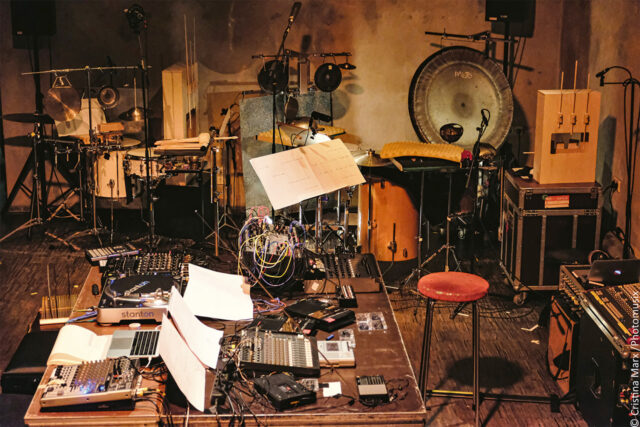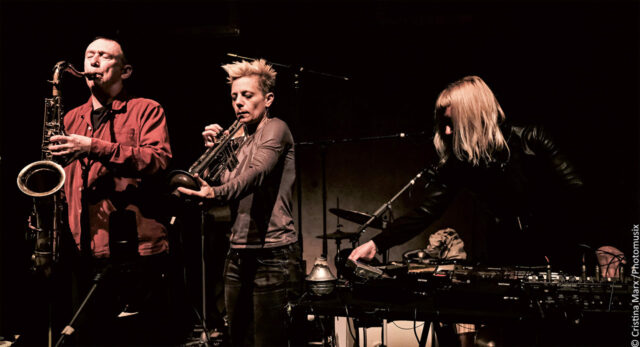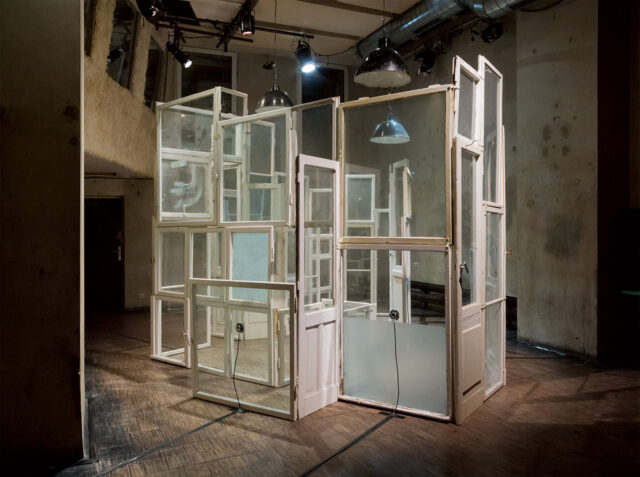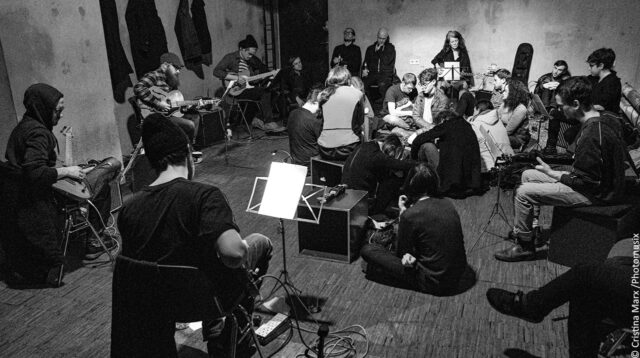
Ignaz Schick, Kompositionen, Ansicht Setup /Equipment, 2019, Foto: Cristina Marx / Photomusix

John Butcher, Liz Allbee, Marta Zapparoli, Konzert 2019, Foto: Cristina Marx / Photomusix

Daniela Fromberg & Stefan Roigk, Unfamiliar Home, Klanginstallation, 2018, Foto: Fromberg & Roigk

Gitarren-Ensemble, Kompositionen von J. Kudirka, J. Reidy, E. Wong, 2019, Foto: Cristina Marx / Photomusix